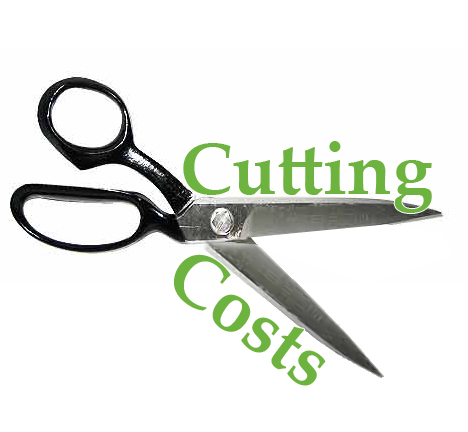When it comes to starting a business, many entrepreneurs opt to take out loans and debts from reputable companies. This is because the capital available for setting up investments is usually not enough. Startups require more than one source of finances to get the business up and running.
Seeking donors and credit card loans are always the first thought that comes to our mind. Often, startups do not get to enjoy profits for the next 3 to 5 years. It’s vital to keep in mind that debts help you start and grow your business but can strongly bring down a well-established enterprise.
In the event that you end up being in a lot of debts than you’d prefer, there is no need to panic. This is because; there are options at hand that you can put into action. It’s essential that you manage your debts before they get out of hand. In this article, we are going to look at ways startups can manage their debts.
1. Creating and analyzing a budget
Newly established investments without a budget are prone to getting into financial difficulties. This is because a startup budget doesn’t entail how you’ll be utilizing your money, but it also has ways of moderating costs. Startup budget enables you to identify the cost of a continuing startup and of establishing one.

A startup budget needs to have fixed expenses, wages, marketing, utilities, equipment and office space cost. Do not guess the numbers instead, research in order to ascertain the amount required don’t underestimate anything. Startup budget shows the costs of running your business and ways of spending, which enables you to pay your debts and growing your startup in the process.
2. Triage all your payments
When it comes to businesses, every aspect is relative and proportional. Debts in your business can either be essential for survival or can be flexible. You can manage debts better by prioritizing the most important and urgent, from the ones that have longer repayment schedules.
Paying off your priority debts is very essential, as they can cause a lot of problems if left unattended to. Such debts can include rents, taxes, mortgages and utility bills, among others. These debts are not the largest but are to be taken care off with urgency as they can lead to you losing your home, power or having your property confiscated.
You can have a list of debts and the ones that have high interest rates and ensure that you pay debts that have high interest rates first. You can also make small payments on non-urgent debts before you get the cash for paying them off.
3. Cutting back on unnecessary expenses
When it comes to investments, some expenses need to be cut back. For instance, purchasing the latest technology is not essential in a business startup. You can opt to go for a second hand or leased equipment instead.
You can also look for cheap utility alternatives and flexible working arrangements, reducing services offered to a manageable level. You can later invest in them as the business grows. You should avoid unnecessary expenditure such as advertisements made on credit card expenses.

4. Consolidating what you can
Most business startups get their funding from different sources. Managing one source of finance can be a daunting task but even more difficult when dealing with multiple sources. You’ll end up burdening your enterprise with unwarranted alarms. With time, your business venture will put more effort into accounting, instead of focusing on increasing profits.
You can manage your debts by pulling them to one consolidation loan. This means, making a single payment rather than making repayments on different times on the same month toward your loan taken from www.nation21loans.com. You can be able to track your financial situation and set your budget as required.
5. Stay calm and accept your debt
There are several tips about how you can manage debts that you might have already come across, but one of the most important and an initial tip is accepting your accrued debts. Also, it is important to prepare and plot the best possible course of action. This can be done by having realistic expectations of debts, thereby taking off some pressure.
Worrying too much will hinder you from focusing on growing your business. Keep your mind focused on how to strategically spend your money and meeting the market demand.

6. Recognizing the signs that you need help
In the event that you are finding it hard to pay your debts and monthly bills, get help from a debt relief company, or a credit counseling agency. You can also opt for other debt relief such as; bankruptcy, debt settlement and debt consolidation.
7. Use an emergency fund to fall back on
With no access to savings, you will need to get into debt to be able to cover an emergency expense. Having a small emergency fund can cover up some expenses; that come up from time to time. You can start by setting up a small emergency fund and work your way to a bigger fund.
8. Making minimum payment
In case you are in a position to make large repayment amounts, consider making payments for the minimum required amount. With this, you will make little progress in clearing your debts, and you’ll be able to prevent your debt from growing. This is also important because it improves credit scores with the credit reference bureaus.

9. Creating an infallible payment schedule
With a bill payment schedule, you can decide on which bill to pay using which paycheck. You can write your bill’s payment next to the due date on your calendar. You will then need to fill the dates for the paychecks.
10. Paying your bills on time each month
Making late payments can make it hard for you to pay off debts. This is because late payment will attract additional fines. For instance, missing two payments increases your interest rate and finance charges. You can avoid late payments by setting reminders so you don’t miss any repayments.

11. Knowing who and how much you owe
Startups can manage their debts by making a list of all the debts they have. This includes creditors, repayment deadlines, the total amount of the debt and the due date. Utilize your credit report for confirming the debts on your list. With a list of debts you owe, you’ll remain aware of the complete debt that you have. You should also refer to your list of debts from time to time, making changes on them as you pay your debts.
12. Being creative with your resources
When it comes to startups managing debts is every essential, this can be done through smart decisions that are before and after a startup. Running a business entails a constant toil; you need to make every nickel count.

Avoiding debts when it comes to a business startup can be hard, but debt management guarantees the success of your business startup. Having a smart, cost-effective mindset puts you at an excellent position of managing your debts, ensuring that your startup remains successful. The above list consists of ways that startups can manage their debts.
